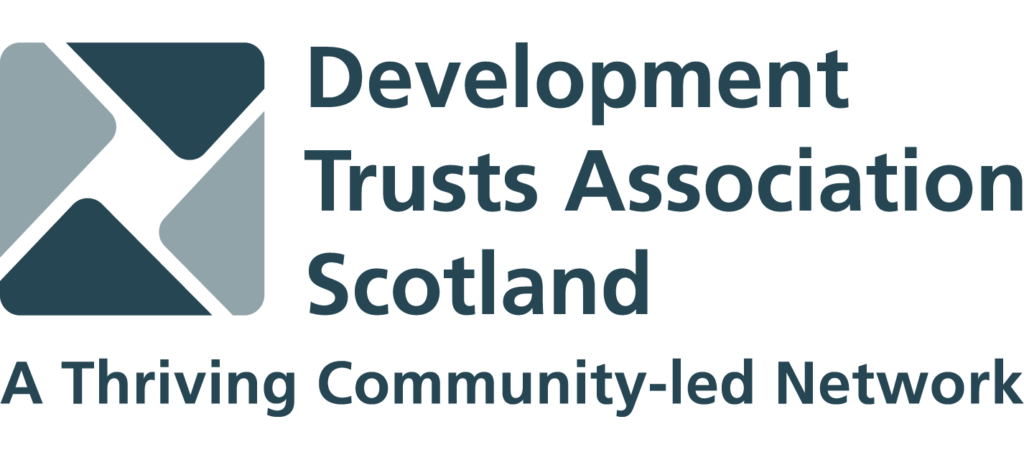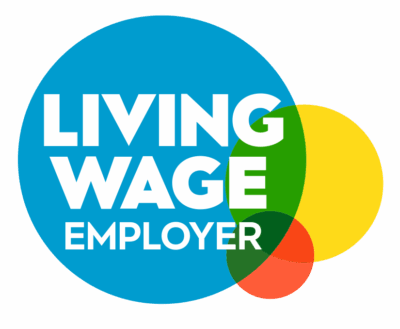There is no more useful or patriotic family than that of
the distinguished “People’s Friend”
novelist, Annie S. Swan.
The First World War was perhaps the first conflict that truly impacted upon lives from across all facets of society. From the local draper to the landowner, the doctor to the author, man to woman, the war tore through civilised life. Leaving grief and heartache in its wake, it demanded the toil, contribution and, too often, the lives of the young and old as the ‘call to arms’ stretched from the front lines of Europe to the towns and villages of mainland Britain.
No family’s struggle better grasps this hardship than that of author and Gorebridge Girl, Annie S. Swan. From her work with the Y.M.C.A at the Front, housing Belgian refugees at home, leading an awareness-raising tour of American high society to living with the everyday hardships of a husband and child at war Swan and her family’s experience of the war straddles every facet of society.
This booklet will briefly chart the most important aspects Annie’s life at home and abroad from the outbreak of the Great War in 1914 to its conclusion in 1918 and how this acts as a fascinating insight into the war as a whole. For simplicity, this will be divided into 4 chapters, each investigating a different way in which her and her family contributed to the war effort.
The Rape of Belgium: Annie and the Refugee Crisis
Their plight would be enough to move even a stoic to tears.
Annie S. Swan, My Life, 1941
It did not take long of the destruction and heightened alarm of the First World War to reach the shores of the UK. The Belgian refugee crisis commenced almost as quickly as the war had started. The ‘Rape of Belgium’, as the German invasion of the country quickly became known, lit the fuse to a mass exodus of peoples which would bear witness to the largest influx of refugees in British history. In total, 250,000 refugees would flee to the United Kingdom during the war – even more remarkably, many left without a trace.
While temporary villages and camps were set up for and by the refugee to accommodate the influx, many were subsumed into houses and families across the country. Annie and her family were one such family. In total, Annie offered refuge to a dozen Belgians, often affectionately referring to them as her ‘Belgian Guests’.
Further information of Annie’s work with the Belgian Refugee council is more difficult to come by than her other war work. What is clear is that her work was substantial. After leaving her home in Scotland and moving to Hertford during the war, she was appointed Chairman (quite the achievement for a female in the area) of the Hertford Refugee Committee – an area which saw more Belgian Refugees settle than at any other time. Such Committees would have been concerned with settling communities of refugees and ensuring they were put to work on the war effort at home and other local projects – in particular the Hertfordshire Gardens were keen to utilise the new labour.
One particularly poignant story that Annie tells of her time with her ‘Belgian Guests’ if of one she refers to as Madame Severin, who would stay with Annie and her family throughout the war. Annie had found it difficult to identify with Madame Severin until one day, after a Zeppelin raid brought destruction to the local town in 1915, upon a visit to the town centre, Annie’s explains that her guest ‘spat upon an unexploded bomb, it was in that moment I understood the misery which had befallen the Belgian peoples.’
While Annie does not shed a great deal of light upon her work during the refugee crisis (her other work outlined later dominates her war time recollections), what is clear is that her contribution was felt in Belgium come the end of the war. Annie received the Queen Elisabeth Medal, a medal created by Royal Decree in 1915 to ‘recognise exceptional services to Belgium in the relief of the suffering of its citizens during the First World War.’ Annie officially received this award form the Belgian King, Albert I (1875-1934) a moment which she described a ‘greatly filling my heart with pride’.
At the Front: Working with the YMCA
When one stands face to face, as I have done, with the remnant of the Neuve Chapelle, and hears the bloody story of Festubert, the thing come home.
Annie S. Swan, letter to the Editor of the Times, July, 1915
The YMCA was a fundamental part of the war effort both at home and abroad during the war. Its effort was particularly concerned with the establishment of ‘recreation centres’ which would offer troops in the UK and France an opportunity to unwind and relax during the fraught effort. In fact, within ten days of the declaration of war, the YMCA had already established 250 centres in the UK, and these were quickly rolled out as British troops moved out to the Front.
In November 1914, the first contingent travelled to France and set up centres at Le Harves, later becoming evident in cities such as Calais, Paris, Marseilles and Dunkirk – among others along the three hundred miles of war communication lines. Although the YMCA centres were mostly staffed by females, this did not prevent them being positioned close to the Front as the picture below shows, offering a place of respite and refreshments for weary troops.
While the primary role of women at the YMCA camps was to supply cocoa, tea, sandwiches and other refreshments to the troops, Annie Swan, owing to her celebrity status, had a more involved and unique role. Annie was sent specifically to the Front on a ‘morale raising’ trip, where she would speak, at night, to the troops stationed there of the ‘gratitude and encouragement of the women at home’. This role began to evolve and would relate, in kind, to her ‘agony aunt’ work in The Women at Home weekly magazine. She describes herself as talking face to face with the soldiers of their ‘mothers, wives, bairns, sweethearts and sisters’, taking note of home addresses and corresponding with their loved ones when she returned – until she describes the role as becoming too ‘gargantuan to deal with’.
Understandably, the work began to shake Annie. At home, without the 24 hour news reports that we are used to, it was often difficult for those not involved at the Front to relate to the horrors which were unfolding. While there was an air of optimism upon Annie’s first trip early in the war, upon her return to the Front the attitude of the soldiers had changed. She explains:
…it is not the same; the glow and the glory have departed. Those who radiated that white heat of splendour are sleeping in quiet graves in France, or Flanders, or on Eastern sands… youth has gone – the men have the deep eyes of seeing men, and their mouths are grimly set. They are here because they have no choice… I am conscious of the mighty difference every time I stand up to speak to them. They are not less determined that the fight shall be to a finish, but they question more.
Annie, and her young daughter Effie, who also travelled due to her proficiency at speaking the French language, were quickly beginning to realise the difficulties the soldiers were facing. In her autobiography she describes as her ‘first introduction to one of the horrors at war’.
While dealing with being exposed to the war first hand in France was difficult enough, tracing family members of soldiers back home also placed a heavy morale burden upon Annie. From trying to trace soldier’s wives who hadn’t been in contact with their men, to relating back the critical injuries to wounded soldiers to mothers and sisters, the effort took its toll on Annie’s own mental state. Her friend, Alice M Head would later say:
Some of the letters were trivial, some amusing, but many were really tragic and she handled them with genuine sympathy and sureness of touch that brought a large measure of help and comfort to her correspondents.
It was therefore through this work, speaking publically to troops, following up on correspondence and the earlier refugee work which we have seen in the previous chapter, which would bring her to the attention of the British Government and result in her crossing the Atlantic to the United States of America.
Save Food! Annie’s tour of the United States of America
I regret I shall not have the pleasure of seeing you in Washington again, so as to thank you… for your services in bringing home to the American people the necessity of food conservation…
Herbert Hoover to Annie S. Swan 25th April 1918
On the 7th January, 1918, as Britain’s war time economy became increasingly squeezed, Annie set sail from England to New York, on a voyage kept secret by government officials. Her mission was to raise awareness in the United States of the need for their increased involvement in the war. In particular, the need to conserve food, or, as Annie liked to put it, the need for the ‘cook to be an artist in wartime’, was the primary message of her trip. However, even her trip to the States was not free of the dangers of war, the U-boat threat on the Atlantic was one which Annie was very much aware. When writing to her close friend, Catherine Nicoll just before she set sail : ‘I am still feeling a little afraid. I am not really plucky, but hope I shall behave well if an emergency arises.’
Annie did reach the American shores safely (describing her first sight of New York as ‘intimidating’) and after doing so embarked on a tour of the country which would take her from the lowest to the highest echelons of American society, through universities, hotel kitchens and government offices as she tried to relate to the American people that ‘Britain needed food, and they alone could provide it.’
Annie’s trip to America was, however, not always plain sailing. After arriving, no prior engagements had been arranged meaning she had to organise her work for herself. She did this through becoming intimately acquainted in the churches of New York which would eventually lead her to a close relationship with later US President Herbert Hoover and previous President Theodore Roosevelt. In fact, Annie had become so intimately appreciated by American high society that at one of her final speeches in Washington DC, the crowd ‘were moved to tears’ by her appeal for help in the war effort at home.
Throughout her tour, Annie was adored. State administrators thanked her for her impact in inspiring labour forces, preventing strikes, and relating to them the importance of the labour force to the war effort in Europe and beyond. One correspondence on April 15th 1918 from the Food Administrator of Massachusetts best sheds light on her impact:
‘We have splendid people here in the United States, but we are 3000 miles from the actual war, and it is hard for us to understand the real responsibility that rests upon us… it so happens that in the last seven or eight months I have had over one hundred labour strikes… Words like yours have tremendous effects at this time.’
Annie viewed the trip as a great personal triumph describing it both as ‘a wonderful chapter of my experience never to be forgotten’, and perhaps more importantly, ‘a great personal triumph and I am very grateful for it. It restored the confidence of which the war had robbed me.’ In the final chapter, we will look at how the war at home had robbed Annie of her confidence, and so why this experience was of particular personal importance.
A Family at War: The Woman at Home
Homes need to be kept together, their disintegration is one of the most awful penalties of the war.
Letter from Annie S. Swan to a Friend
While the war time experience which we have charted so far may seem exceptional, Annie’s life at this time is also indicative of a family struggling to live through the tumultuous, dangerous and often tragic war period. From Zeppelin raids, to living alone with her family at war, the Swan family are a telling story of that experience, an experience which crossed society boundaries.
One of the particularly harrowing and frightening moments at home was the new threat of the war reaching the British Isles. The threat of Zeppelin raids had become a real danger and it was not long before that danger literally came to fall on Annie’s house. The pictures below show the extent of destruction which visited the Swan household as a Zeppelin dropped its terror over Hertford on its way to London on the night of 13th October 1915. There had been no warning sirens as the first bomb fell on the local power station – eight in total falling upon the Swan’s ‘North House’ Thankfully Effie, Annie and James miraculously escaped unscathed, the household cat being the only fatality. Of this ordeal, Annie said ‘I really felt like we were at the mouth of hell.’
By the time the war broke out James (Annie’s husband) had been practising medicine since the late 19th century. James had had a lot of public exposure, like Annie, having been elected mayor of Hertford before the war. Doctor Burnett-Smith had been keen to get to war, Annie describes him as ‘agitating at the home office’ until eventually they were willing to overlook his nearly 60 years as the need for doctors became more stretched.
At this time, Annie’s daughter Effie had also continued her work for the YMCA at the front, leaving Annie, at home, alone. Effie would only return home for a couple of weeks at a time, eventually ending her service in Germany, 1919, after the surrender of the country in late 1918. Having previously described herself as being envious of wives who were proud of their husbands and children at the front, she is quick to envy the opposite after James’ departure she explains to her friend Corenlia:
‘There is no glory in war for women’s hearts, Cornelia. Today I am neither proud nor glad, but only sorry to be a soldier’s wife.’
She goes as far as to suggest that her, and other housewives across the country were ‘at war with the war’, surrounded by a constant fear for their loved ones.
A number of times this fear was heightened as Annie lost contact with both Effie and James, again, Annie was able to perfectly encapsulate the fear which this caused amongst families up and down the nation:
‘I haven’t had a message of any kind for six weeks – I don’t even know where he is.
We live through these things. Thousands of women are eating their hearts out all over the world, just as I am. It is the price of war.’
On two of those occasions the circumstances which caused this loss of contact were particularly distressing. On the night of May 3rd 1917, James had set sail for the Middle East with his hospital unit in the troopship Transylvania. This ship was torpedoed in the Mediterranean by a German U-Boat and sunk. The doctor, clinging to a life raft for two hours, was eventually picked up by a Japanese destroyer and landed at the port of Savona where he was nursed by an Italian service. He was subsequently sent home, but his health having been affected by the experience meant that he was no longer passed fit for war service.
A similar scare came after Effie, working at the Front with troops with the YMCA, was reported to have been admitted into an army camp hospital. Again, such was the problem with communication, it took some time for Annie to find out the extent of her injuries – a wait that was prevalent with all families at home. Thankfully for the Swan’s Effie had a broken leg, and maintained that she intended to stay and help the war effort.
Such trials experienced by the Swan family could be replicated and retold amongst many ordinary working families in Britain between the outbreak of war in 1914 and its end in 1918. Thankfully for Annie, all members of her family returned home safely after close encounters with the real damage of the war.





